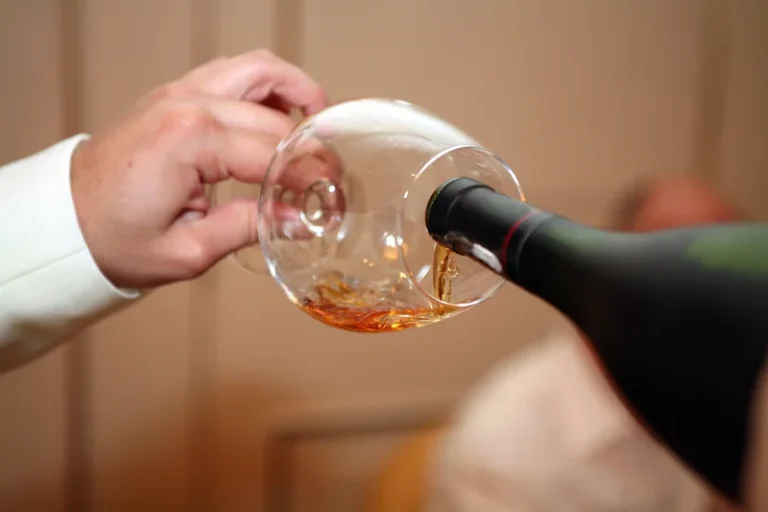They can also be used to express ourselves or to reach out and help and encourage others. The recurring message here is that people struggling with addiction can find solace and encouragement in sobriety quotes. Whether written or spoken, it can drastically change how we perceive reality. They crystallize our beliefs and drive our behavior—including helping and inspiring us to heal in the case of positive self-affirmation.
- They did extraordinary tricks, showed you things you hadn’t seen, were fun.
- And I reached out for help, and I ran with it.
- Do not delay seeking professional advice or mental health treatment because of something you have read about on Sober Healing.
But even if you’ve already developed addiction, it’s never late to choose the path of cleanliness and sobriety. These and other addiction recovery quotes are a great way to facilitate https://ecosoberhouse.com/ the process of early recovery. When paired with the support of drug and alcohol recovery centers, your chance for long-term recovery is higher, and your future is bright!
Quotes About Inner Strength During Recovery
Explore our guide to dating someone in recovery, offering insights, tips, and support for a healthy and fulfilling partnership. To overcome addiction, you need to decide it internally, casting aside https://ecosoberhouse.com/article/10-useful-sobriety-sayings-that-can-help/ your previous denials and excuses and abandoning your old patterns of thinking and ways of life. Beating addiction also requires you to have the strength to ask for help when you can’t do it alone.
- This is not because you are weak; on the contrary, getting help requires great strength.
- Are you or a loved one possibly suffering from drug and alcohol addiction?
- Addiction never takes a day off, and neither should our recovery.
- This list of addiction recovery quotes is all about inspiration, and the great thing about positive thinking is that it allows you to generate your own inspiration from the inside out.
- Some of the best drug free quotes and sayings amidst a chaotic life of addiction begin with the hope that something ‘out there can instantly fill up the emptiness inside.
At Landmark Recovery, we’ve built a reputation for treating individuals seeking help for drug and alcohol addiction. You’re not just a number to us; our team of dedicated medical professionals is waiting to greet you with compassion, understanding and respect. The daily battle for sobriety is an all-too-familiar struggle for many recovering addicts. Even those years into their sobriety, the threat of relapse remains lurking in their day-to-day lives. If you ever feel this way, know that plenty of people are dealing with the same struggle and that each day of sobriety is another victory. This handful of addiction quotes deals with alcohol abuse and alcohol addiction.
The Road To Recovery Quotes with 100 Sobriety Anniversary Quotes
Whether you’re just starting out or have been sober for years, our site is a valuable resource to help you find strength, resilience, and hope for a fulfilling life in sobriety. The following family of addicts quotes about drug addiction can help offer positive sober anniversary quotes. While the family arises from undeniable difficulties, hope and inspiration from one’s family can be a genuine turning. Family of addicts quotes can help ensure loved ones of their parents and siblings love and support that they are not alone. Family of addicts quotes can encourage loved one’s to carry on. Sobriety quotes can help you discover inspiration and motivation for anyone in recovery to continue their sobriety.
Love them or hate them inspirational quotes have been around for many, many years. Some are so profound and insightful that they are still referred to often today. Actress Demi Lovato shares a powerful sobriety quote about accepting help from loved ones. Asking yourself why an addict can’t love you?
When Times Get Tough
Whether you’re on the path to addiction recovery, seeking strength to stay sober, or looking to support a loved one, these 25 sobriety quotes are tailor-made. Sometimes browsing inspirational sobriety quotes helps me re-center my focus and gives me strength with my recovery. So I created this list with the sincere hopes of helping others find peace in their addiction recovery. These studies highlight the potential benefits of incorporating positive motivational messaging into addiction recovery programs. If you are on the road to recovery from a drug or alcohol addiction, you have something to celebrate about. Reminiscing on your positive recovery progress by reading the inspirational road to recovery quotes is a terrific way to stay motivated and optimistic about your success.
Happy 50th Birthday, Matthew Perry! The star’s best quotes on … – USA TODAY
Happy 50th Birthday, Matthew Perry! The star’s best quotes on ….
Posted: Mon, 19 Aug 2019 07:00:00 GMT [source]







